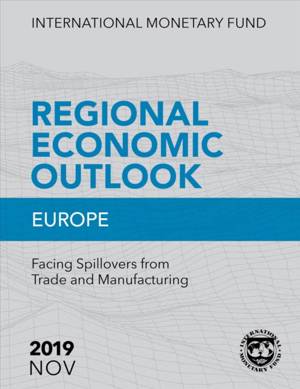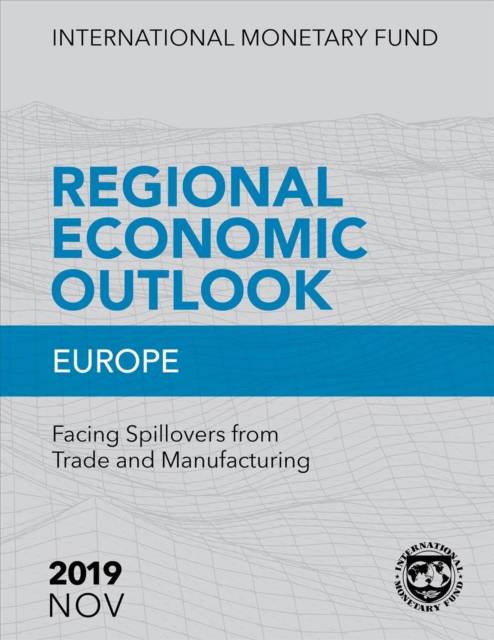
Door een staking bij bpost kan je online bestelling op dit moment iets langer onderweg zijn dan voorzien. Dringend iets nodig? Onze winkels ontvangen jou met open armen!
- Afhalen na 1 uur in een winkel met voorraad
- Gratis thuislevering in België vanaf € 30
- Ruim aanbod met 7 miljoen producten
Door een staking bij bpost kan je online bestelling op dit moment iets langer onderweg zijn dan voorzien. Dringend iets nodig? Onze winkels ontvangen jou met open armen!
- Afhalen na 1 uur in een winkel met voorraad
- Gratis thuislevering in België vanaf € 30
- Ruim aanbod met 7 miljoen producten
Zoeken
€ 27,45
+ 54 punten
Uitvoering
Omschrijving
Economic activity in Europe has slowed on the back of weakness in trade and manufacturing. For most of the region, the slowdown remains externally driven. However, some signs of softer domestic demand have started to appear, especially in investment. Services and domestic consumption have been buoyant so far, but their resilience is tightly linked to labor market conditions, which, despite some easing, remain robust. Expansionary fiscal policy in many countries, and looser financial conditions, have also supported domestic demand. On balance, Europe' s growth is projected to decline. A modest recovery is forecast for 2020 as global trade is expected to pick up and some economies recover from past stresses. This projection, broadly unchanged from the April 2019 World Economic Outlook, masks significant differences between advanced and emerging Europe. Growth in advanced Europe has been revised down, while growth in emerging Europe has been revised up. Amid high uncertainty, risks remain to the downside, with a no-deal Brexit the key risk in the near term. An intensification of trade tensions and related uncertainty could also dampen investment. More broadly, the weakness in trade and manufacturing could spread to other sectors--notably services--faster and to a greater extent than currently envisaged. Other risks stem from abrupt declines in risk appetite, financial vulnerabilities, the re-emergence of deflationary pressures in advanced economies, and geopolitics.
Specificaties
Betrokkenen
- Auteur(s):
- Uitgeverij:
Inhoud
- Aantal bladzijden:
- 34
- Taal:
- Engels
- Reeks:
Eigenschappen
- Productcode (EAN):
- 9781513514017
- Verschijningsdatum:
- 6/11/2019
- Uitvoering:
- Paperback
- Formaat:
- Trade paperback (VS)
- Afmetingen:
- 152 mm x 229 mm

Alleen bij Standaard Boekhandel
+ 54 punten op je klantenkaart van Standaard Boekhandel
Beoordelingen
We publiceren alleen reviews die voldoen aan de voorwaarden voor reviews. Bekijk onze voorwaarden voor reviews.











